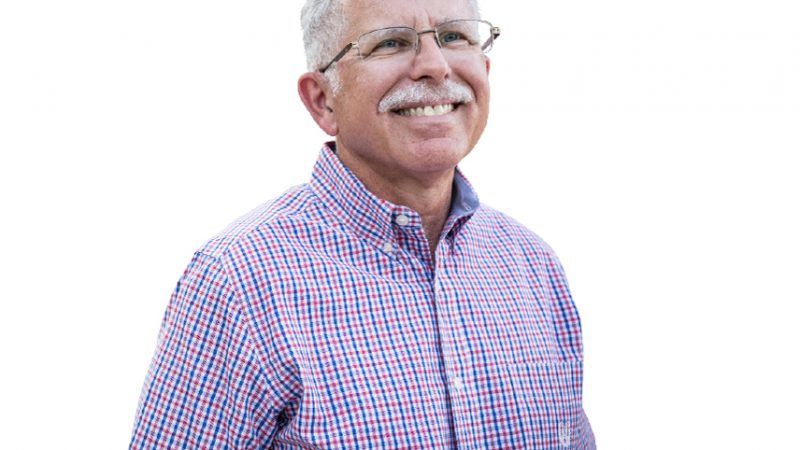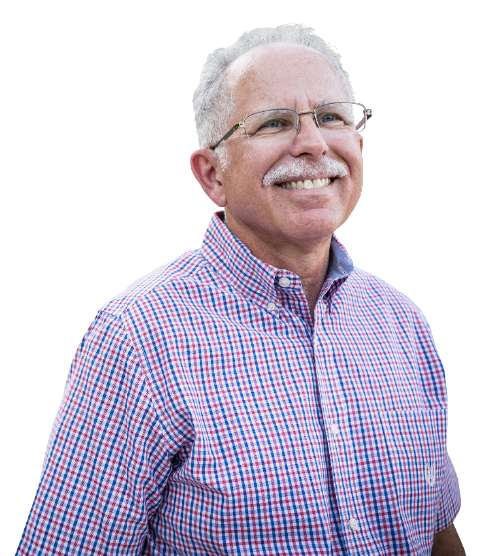Mark Janus Doesn't Want to Join a Union


Mark Janus is a child support specialist for the state of Illinois who has lent his name to a Supreme Court case that could dramatically change the landscape for public sector unions. The former Eagle Scout sued the American Federation of State, County and Municipal Employees when he learned the association could deduct dues from his paycheck even though he wasn't a member and didn't want its reps negotiating his salary and benefits. The high court heard arguments in February and will likely issue a ruling this summer. Days before he appeared before the justices, Janus spoke to Reason's Nick Gillespie about what he's hoping to accomplish.
Q: What's the crux of your case?
A: That I have to pay a fee to the union even though I'm not a member of the union, and I wasn't asked for consent.
Q: If the union helps you get a better compensation package, that's beside the point?
A: Correct. My right to say no is just as important as my right to say yes. I wasn't allowed to say, "No, I don't want to pay this." I either pay the union fee or I lose my job.
Q: Would you be able to hammer out a better deal on your own?
A: Whether I can get a better deal on my own or not, that's not the question. The question is my First Amendment rights to speech and freedom of association.
Q: University of California, Los Angeles, law professor Eugene Volokh, whose blog is hosted by Reason, filed a friend-of-the-court brief against your position, saying there's not a First Amendment issue here—taxpayers are constantly being forced to pay for activities they don't approve of, and it's not unconstitutional because tax money is not speech. What do you think of that?
A: I totally disagree. In the most recent round of negotiations, when our current governor said no to the demands the union was making, the union held rallies around the state pushing for a tax increase.
Q: And the cost of that rally is charged to you?
A: That's unknown. But because they're out there asking for increases in benefits, and they're lobbying for tax increases to pay for it, to me that's political speech.
Q: Public sector union dues are voluntary in 28 states, and workers don't seem worse off as a result. Is that what you'd ultimately like to see as a policy outcome? Unions can exist, but they only represent people who want to pay for them?
A: There's no law that says they have to bargain for everybody. Why can't they bargain for just members who want to pay their fee?
Q: Has this case made you unpopular in the office?
A: I've got people who've actually come up to me and said, "Thank you for what you're doing. We appreciate what you're doing." I've gotten emails. I've gotten letters totally out of the blue. It's been enlightening. What's also interesting is that they're doing all of this under the radar.
Q: What is it like to have your name on a Supreme Court case?
A: It's a bit scary and also, at times, a bit overwhelming. Quite frankly, I try not to think about it. I'm just a guy who gets up and goes to work every day. I've got two wonderful kids, and I'm still involved with the Boy Scouts.
Q: A similar case last year split 4–4 due to the death of Antonin Scalia. With Neil Gorsuch now on the bench, is there a reason to believe it's going to be a 5–4 decision in your favor?
A: I am not going to make any predictions.
Q: But you are prepared?
A: I'm prepared whichever way it goes.
This interview has been condensed and edited for style and clarity. For an audio version, subscribe to the Reason Podcast.
This article originally appeared in print under the headline "Mark Janus Doesn't Want to Join a Union."


Show Comments (62)